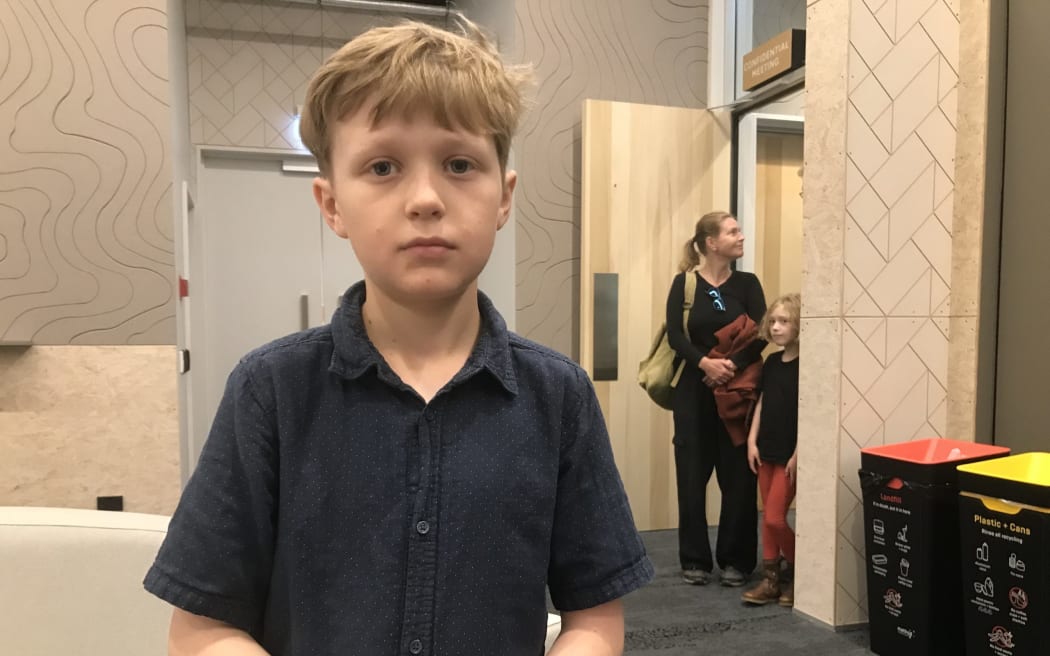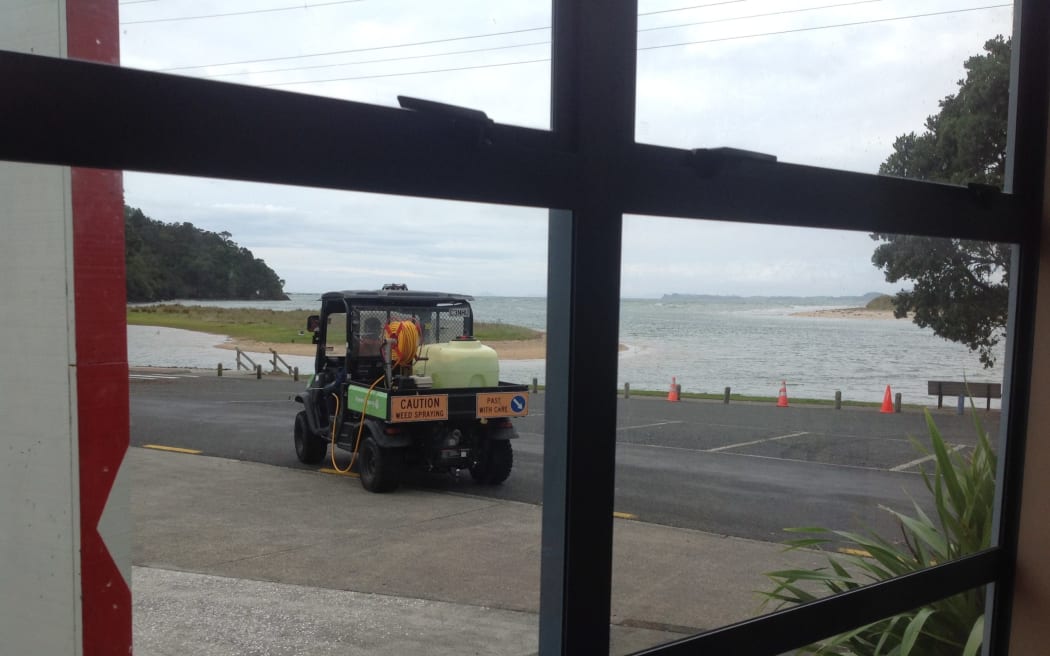
Local government democracy is for all ages - Henry Bedell (11) from Tūtūkākā outside the WDC council chambers in the Te Iwitahi civic centre after his spray safety presentation to councillors. Photo: LDR / Susan Botting Local Democracy Reporter Northland
An 11-year-old Tūtūkākā student's push for safer Whangārei District Council weed-spraying around his school is paying off.
Henry Bedell said it was important to improve safety practices for herbicide weed spraying outside Ngunguru School to avoid risks for students in the playground and when they walked barefoot across sprayed grass after school.
Henry, Year 8, presented his weed-spraying safety concerns to a recent Whangārei District Council (WDC) meeting and also wrote to the Minister of Health.
He told politicians at the council's late December meeting there needed to be better signage when council contractors Citycare Property Whangārei were spraying weeds along seaside Te Maika Rd outside his school.

Citycare Property Whangārei branch manager Dan Isaac said health and safety was his company's top priority.
"We're always happy to hear feedback from the community. We live here too, so we want this to be a place families feel like their kids are safe and happy," Isaac said.
"From the tools we use, to the signage we place, to the time of day we work, our top priority is health and safety - both of our workers and members of the community."
The company worked with the council to make sure the community was satisfied and they were happy to adopt any recommended changes, Isaac said.
"It's great to see Henry take the initiative and speak up when something concerns him. He'll be a great leader and advocate for his community."
WDC manager parks and recreation Louis Rattray said this week, in the wake of Henry's presentation, that more signage would now be put out when future spraying was done. This would specifically include outside the school.
Henry said that was a good start.
WDC sprayed with glyphosate herbicide spray, which Henry said his research indicated was a probable carcinogen.
Henry said his strong preference was for the council not to use herbicide spray to control weeds outside his school, but if it was used, improved safety practices should be followed.
"Spraying should not occur during school hours or after school before 4pm to avoid kids walking on toxic chemicals," Henry said.
Henry said visible signage should be in place for 24 hours after spraying because glyphosate labelling recommended that time period before kids and pets touched the sprayed areas.
He said other less toxic ways of dealing with weeds outside the school should be used.
This could be using hot water, as was done by the WDC contractor's Christchurch division in residential settings. Weedeating was another option.
Both were more eco-friendly and left no invisible toxic consequences, Henry said.
However, Rattray said there had been a lot of studies carried out around glyphosate and whether it was a probable carcinogen.
Some reputable sources said it was not carcinogenic, others said it was, Rattray said.
However, that possible risk was related to frequency of exposure, with infrequent exposure posing "a very small risk".

WDC sprays herbicide onto weeds along Te Maika Rd Ngunguru three to four times a year. Photo: Supplied / Local Democracy Reporting Northland
Rattray said the council spray contractor had, through experience at this site, found there was less risk to people, including children, if spraying was done during school hours as more people used the area before and after school.
"The manufacturer recommendations are to avoid the area for 24 hours after spraying and we recommend that people follow those instructions by avoiding the area or wearing shoes. In reality, once the chemical has dried on the ground - (in) less than an hour - the risk to people is reduced significantly," Rattray said
He said spraying was used to kill weeds along grass edges in gravel areas, where it was not safe to use a weedeater.
"We use spray where there is a gravel edge because there is a high risk of the weedeaters spraying out stones and hitting cars and/or people, causing damage or injury," Rattray said.
Henry said he would be having his say about whether WDC should include money for a review of its council spraying approaches in its new draft 10-year budget, out for public consultation in March.
Rattray said this potential budget item was being included because of public concern over spraying.
A council spokesperson said Henry's presentation was very timely because it highlighted the issue while WDC was considering what funding and work could be included in the 10-year budget.
LDR is local body journalism co-funded by RNZ and NZ On Air.

